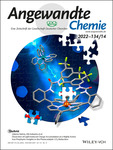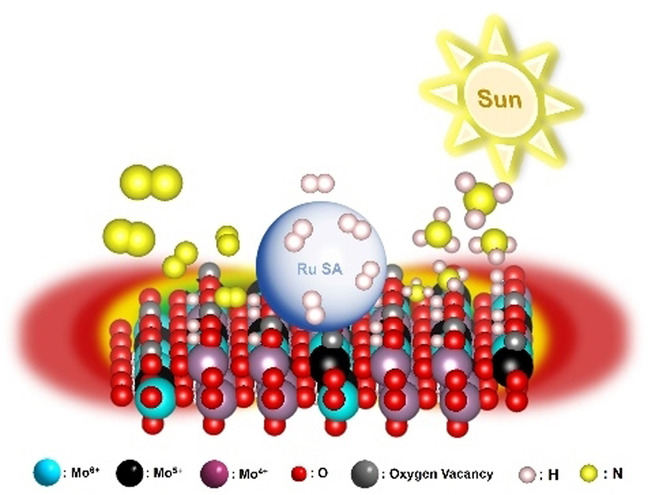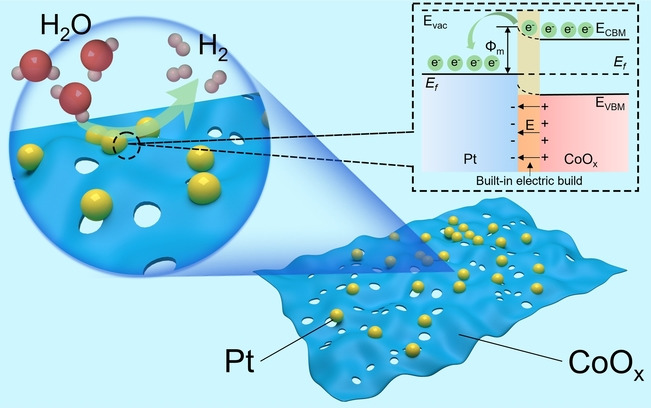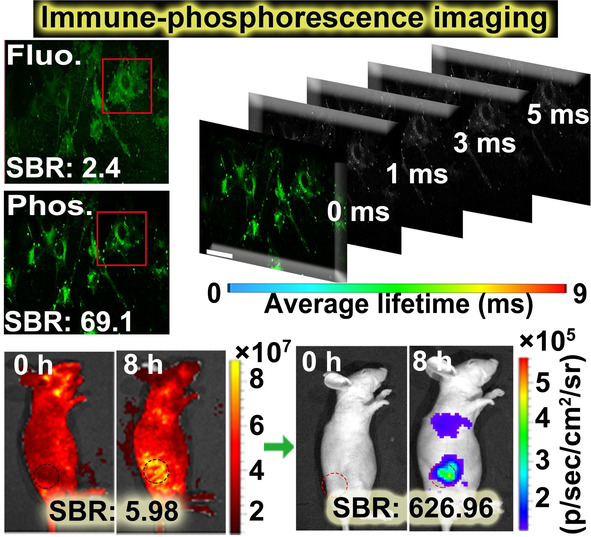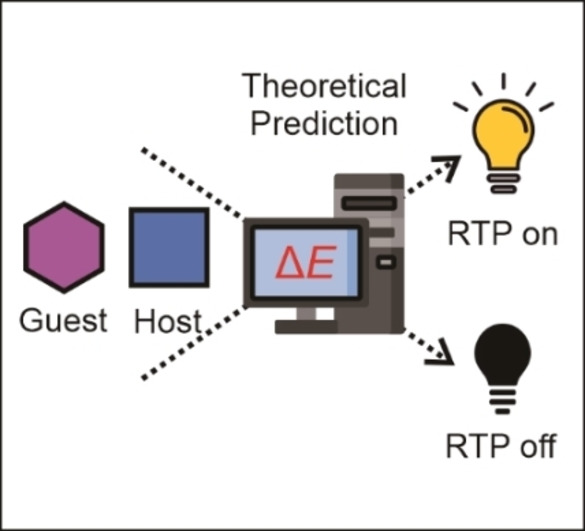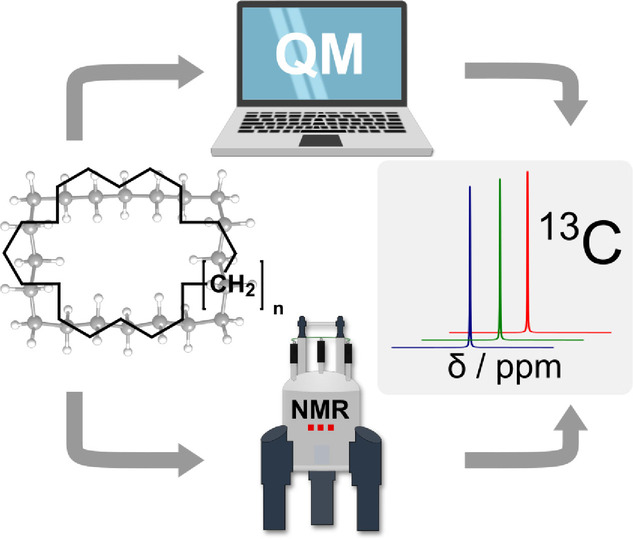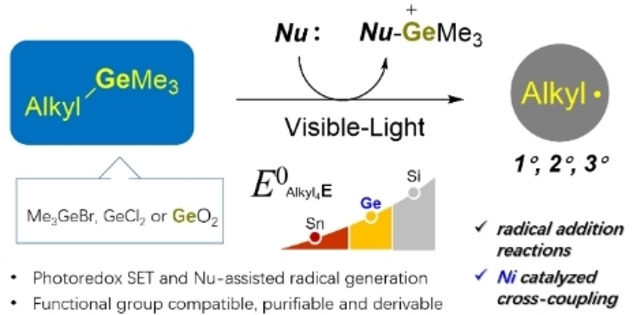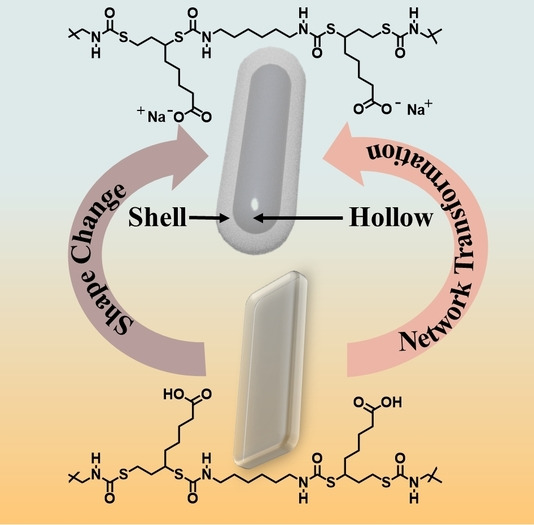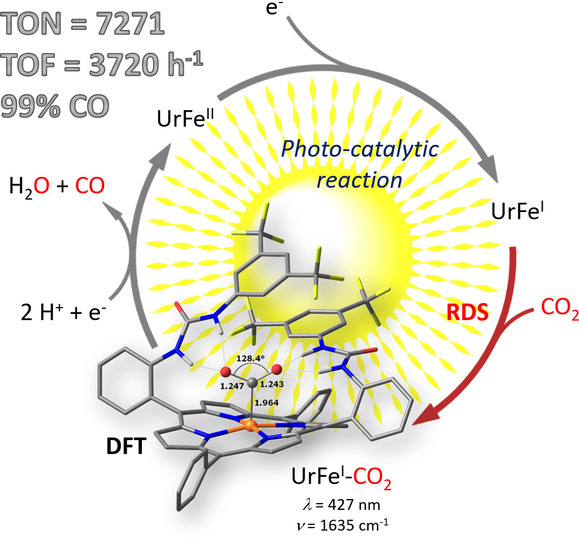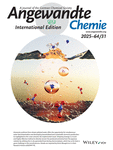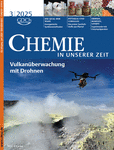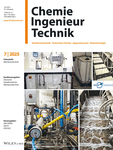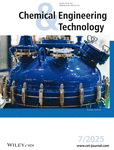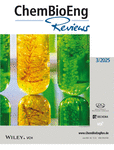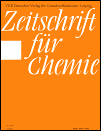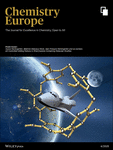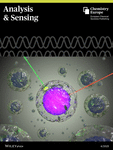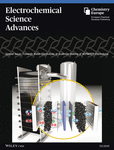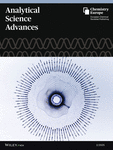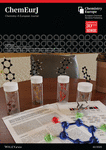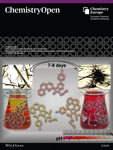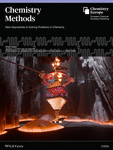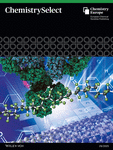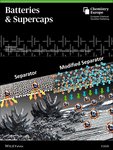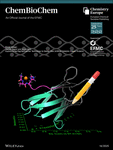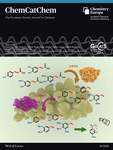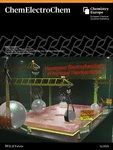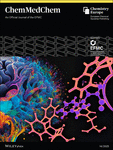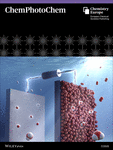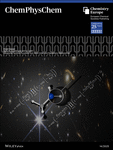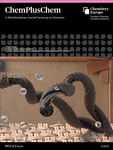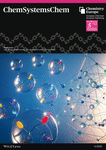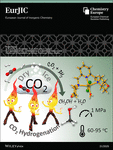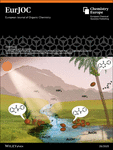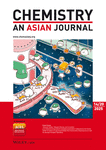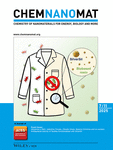Journal list menu
Export Citations
Download PDFs
Titelbild
Titelbild: Dissection of Light-Induced Charge Accumulation at a Highly Active Iron Porphyrin: Insights in the Photocatalytic CO2 Reduction (Angew. Chem. 14/2022)
- First Published: 09 March 2022
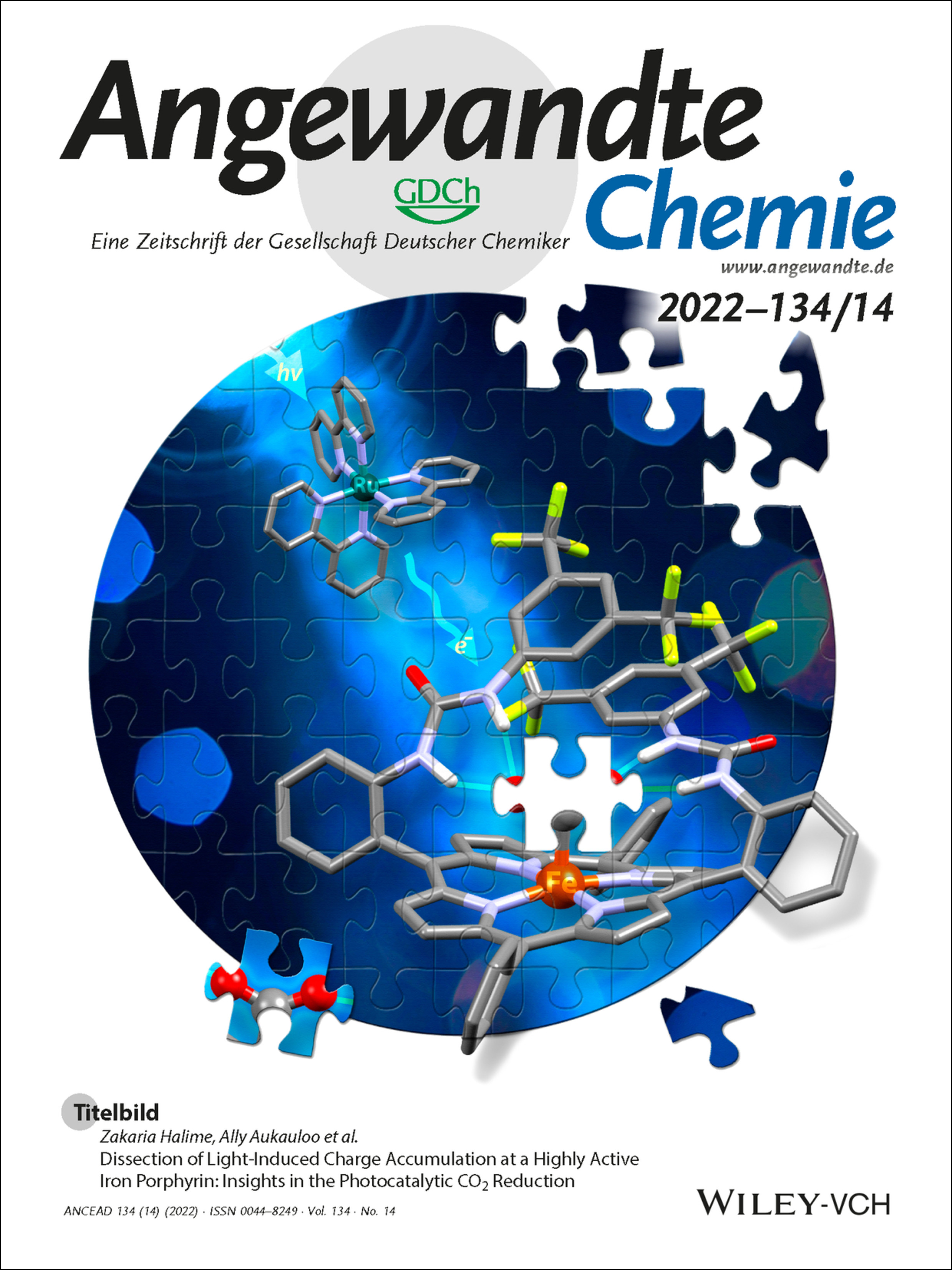
Die Entschlüsselung des Mechanismus der Ladungsakkumulation bei der lichtgetriebenen Kohlendioxidreduktion unter Verwendung von wasserstoffverbrückten Eisenporphyrinen liefert neue Einblicke in den geschwindigkeitsbegrenzenden Schritt. Während der formale Fe(0)-Redoxzustand weithin als die katalytisch aktive Spezies galt, zeigen Zakaria Halime, Ally Aukauloo et al. in ihrer Zuschrift (e202117530), dass die Fe(I)-Spezies bereits an der Substrataktivierung des photokatalytischen Zyklus beteiligt ist.
Innentitelbild: Iodine-Catalysed Dissolution of Elemental Gold in Ethanol (Angew. Chem. 14/2022)
- First Published: 09 March 2022
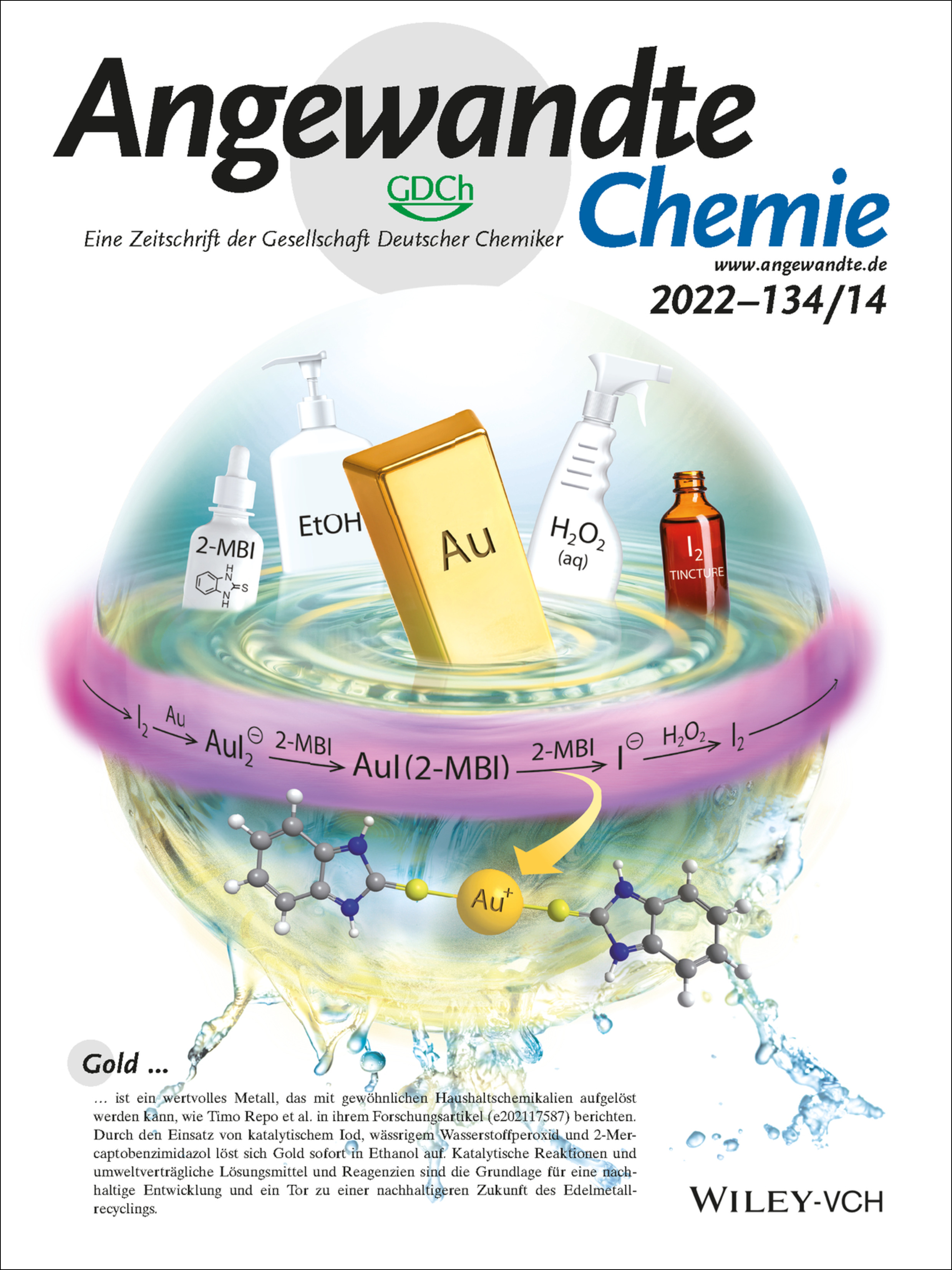
Gold ist ein wertvolles Metall, das mit gewöhnlichen Haushaltschemikalien aufgelöst werden kann, wie Timo Repo et al. in ihrem Forschungsartikel (e202117587) berichten. Durch den Einsatz von katalytischem Iod, wässrigem Wasserstoffperoxid und 2-Mercaptobenzimidazol löst sich Gold sofort in Ethanol auf. Katalytische Reaktionen und umweltverträgliche Lösungsmittel und Reagenzien sind die Grundlage für eine nachhaltige Entwicklung und ein Tor zu einer nachhaltigeren Zukunft des Edelmetallrecyclings.
Innenrücktitelbild: Self-Propelled Multifunctional Microrobots Harboring Chiral Supramolecular Selectors for “Enantiorecogniton-on-the-Fly” (Angew. Chem. 14/2022)
- First Published: 03 March 2022
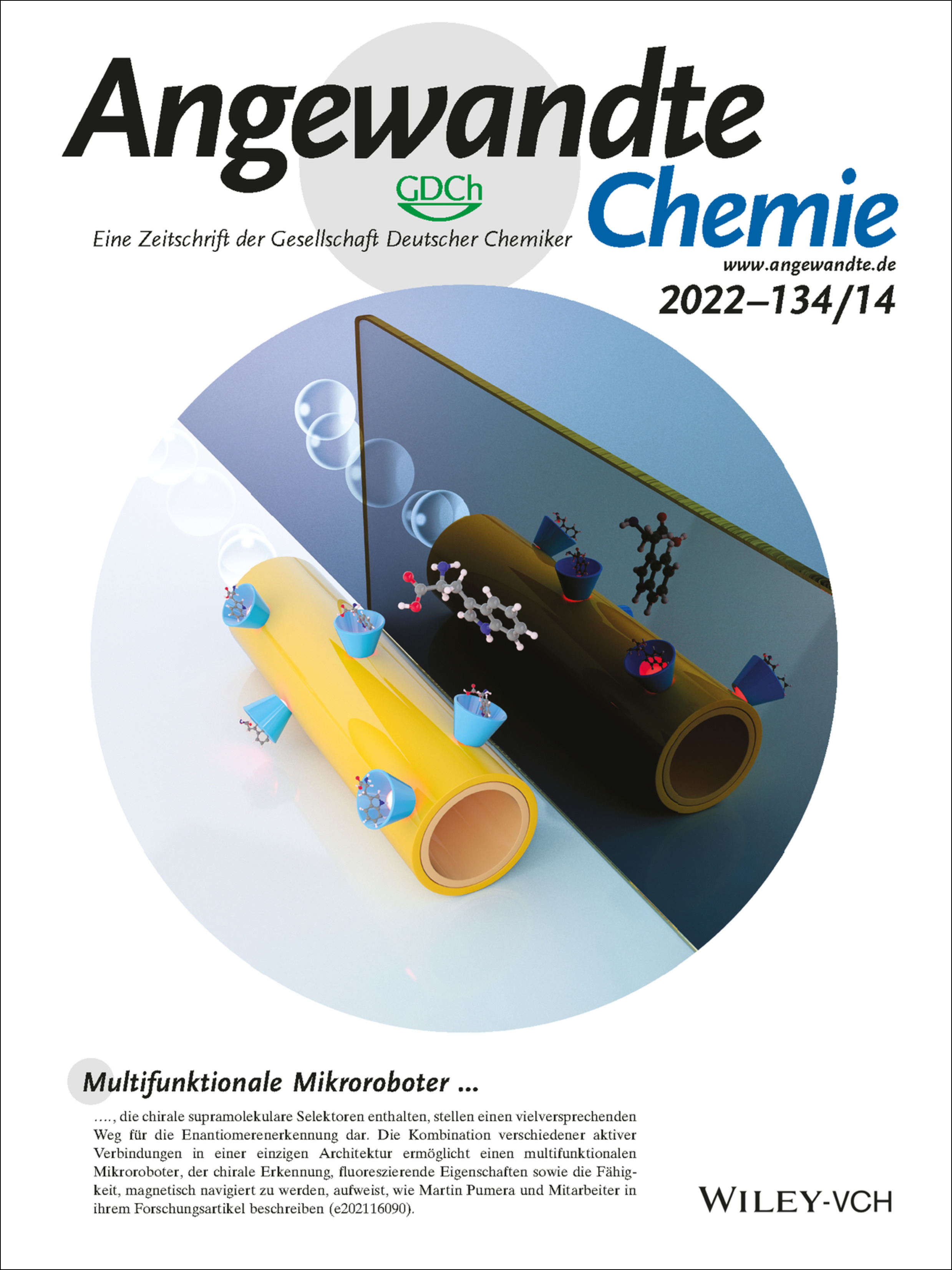
Multifunktionale Mikroroboter., die chirale supramolekulare Selektoren enthalten, stellen einen vielversprechenden Weg für die Enantiomerenerkennung dar. Die Kombination verschiedener aktiver Verbindungen in einer einzigen Architektur ermöglicht einen multifunktionalen Mikroroboter, der chirale Erkennung, fluoreszierende Eigenschaften sowie die Fähigkeit, magnetisch navigiert zu werden, aufweist, wie Martin Pumera und Mitarbeiter in ihrem Forschungsartikel beschreiben (e202116090).
Rücktitelbild: Accelerated Mechanochemistry in Helical Polymers (Angew. Chem. 14/2022)
- First Published: 09 March 2022
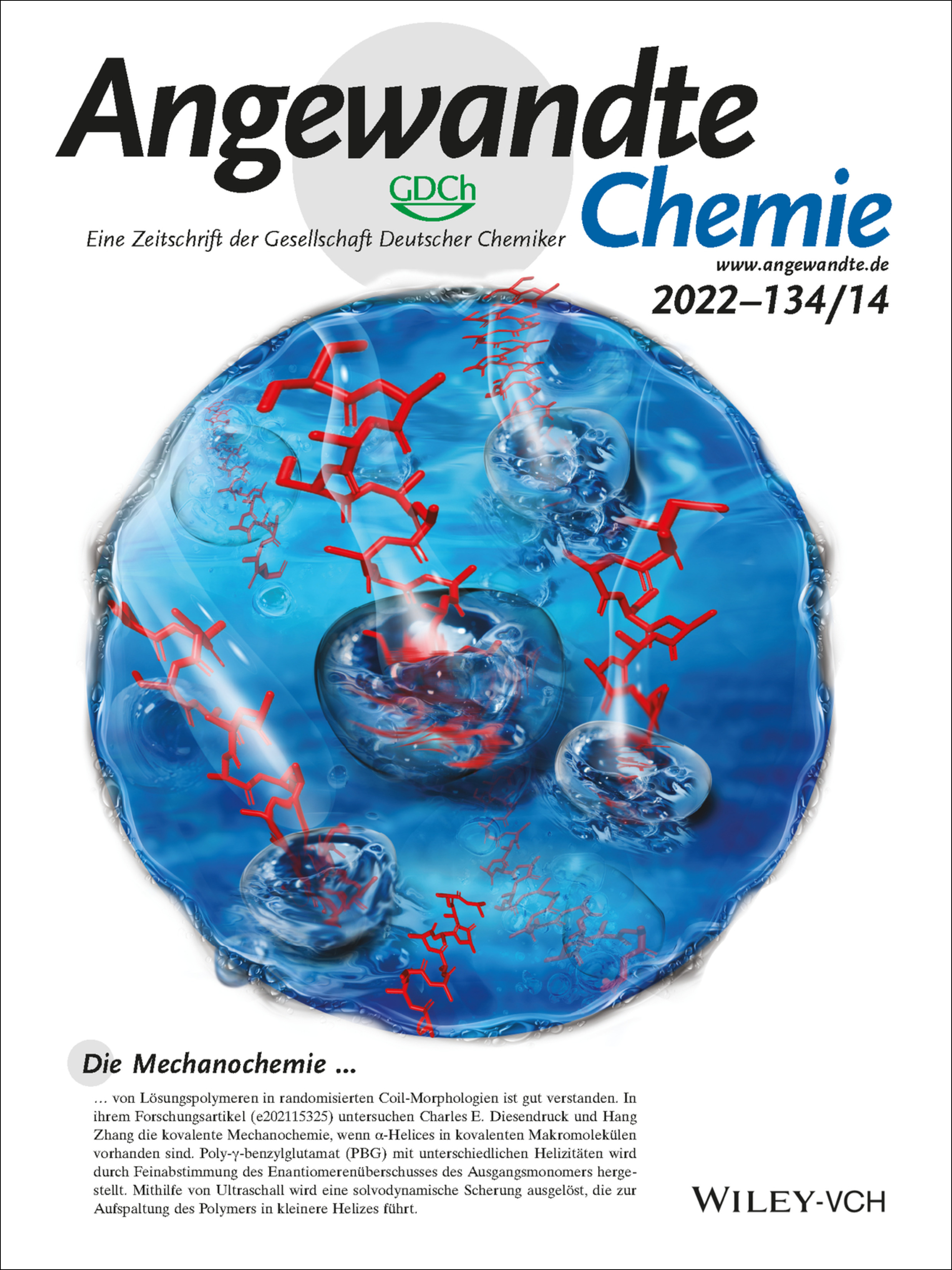
Die Mechanochemie von Lösungspolymeren in randomisierten Coil-Morphologien ist gut verstanden. In ihrem Forschungsartikel (e202115325) untersuchen Charles E. Diesendruck und Hang Zhang die kovalente Mechanochemie, wenn α-Helices in kovalenten Makromolekülen vorhanden sind. Poly-γ-benzylglutamat (PBG) mit unterschiedlichen Helizitäten wird durch Feinabstimmung des Enantiomerenüberschusses des Ausgangsmonomers hergestellt. Mithilfe von Ultraschall wird eine solvodynamische Scherung ausgelöst, die zur Aufspaltung des Polymers in kleinere Helizes führt.
Frontispiz
Frontispiz: Peptoid-Directed Formation of Five-Fold Twinned Au Nanostars through Particle Attachment and Facet Stabilization
- First Published: 21 March 2022
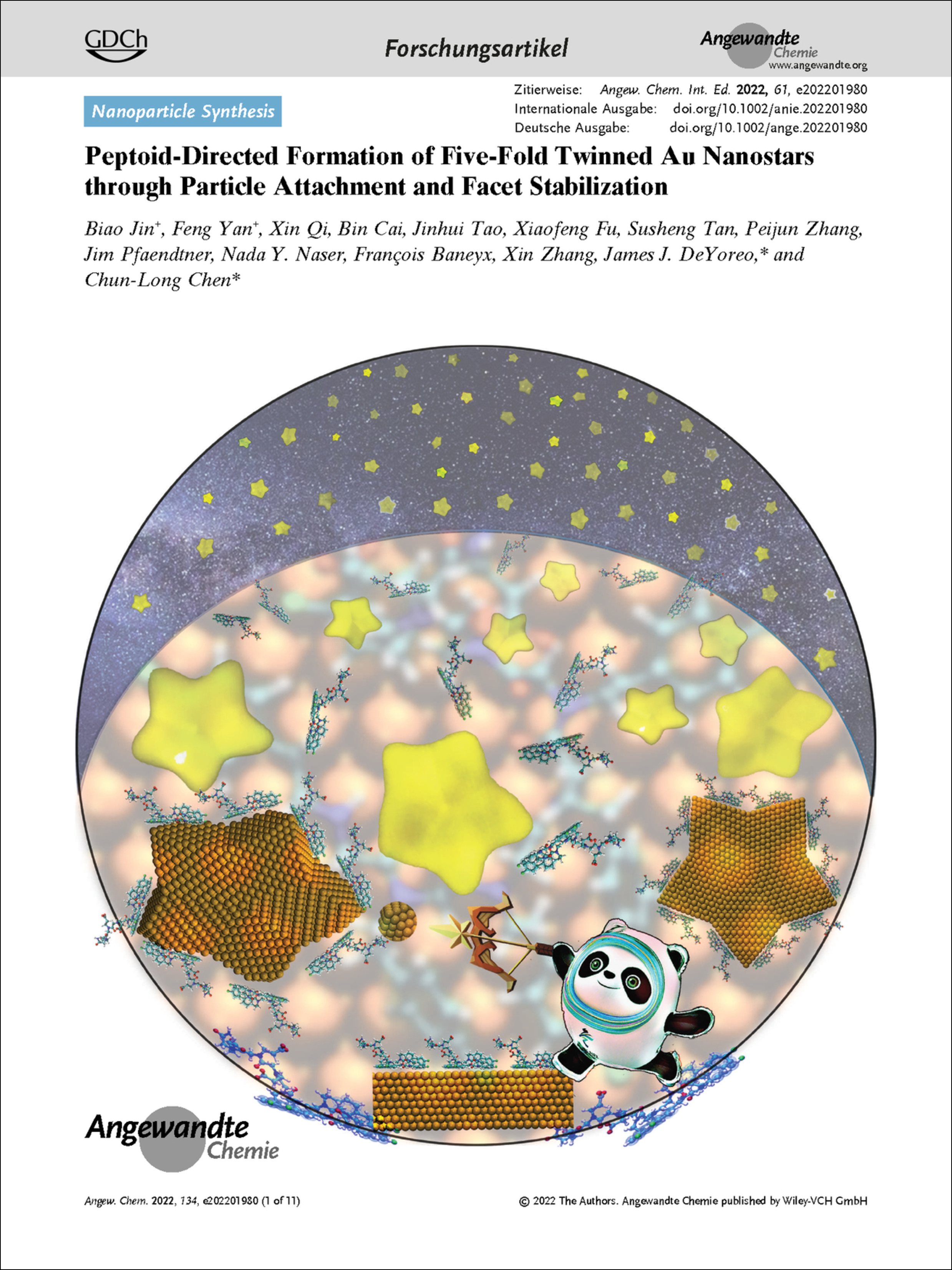
Nanopartikel Die peptoiddirigierte Bildung von verzwillingten Au-Nanosternen durch Partikelanlagerung und Facettenstabilisierung wird im Forschungsartikel von James J. DeYoreo, Chun-Long Chen et al. vorgestellt (e202201980).
Graphisches Inhaltsverzeichnis
Graphisches Inhaltsverzeichnis: Angew. Chem. 14/2022
- First Published: 21 March 2022
Berichtigung
Berichtigung: Ganzheitliche Betrachtung in der Materialentwicklung: Wasser-Elektrolyse als Fallbeispiel
- First Published: 21 March 2022
Introducing …
Abigail Knight
- First Published: 03 February 2022

“Modern science needs to focus on bringing everyone to the table—interfacing with additional disciplines and incorporating diversity of all forms … A key experience in my education / career was learning to celebrate successes that could seem incremental and to navigate rejections …” Find out more about Abigail Knight in her Introducing … Profile
Morgan Donnard
- First Published: 08 February 2022

“My favorite science outreach activity is meeting with young people at science fairs to answer the questions they have about the world around them (not always easy to answer but often inspiring) … I chose chemistry as a career because you transform and model matter at the scale of the molecule, a scale imperceptible to human beings until very recently in our history. …” Find out more about Morgan Donnard in his Introducing … Profile.
Kurzaufsätze
Oxygen Evolution Reaction
Inter-relationships between Oxygen Evolution and Iridium Dissolution Mechanisms
- First Published: 23 December 2021
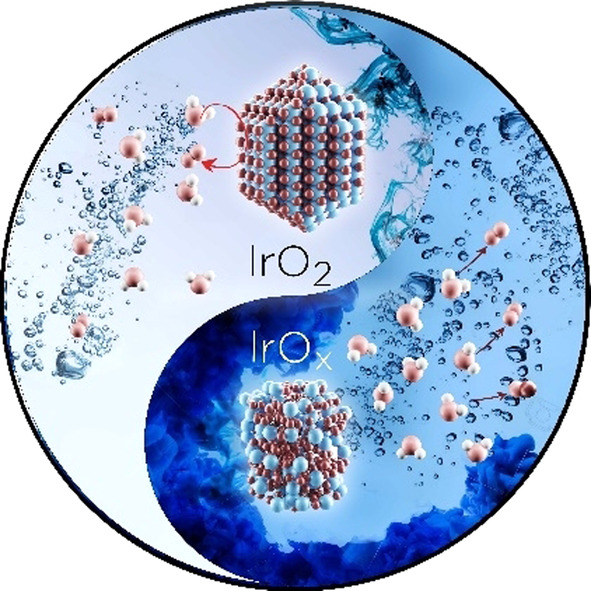
The storage of excess renewable energy in the form of hydrogen depends on the efficiency of the oxygen evolution reaction (OER) and thus the rational design of novel iridium-based catalysts with improved electrocatalytic properties. To achieve this, it is necessary to understand both the OER and dissolution mechanisms as well as their inter-relationship. This Minireview gathers state-of-the-art information of these phenomena on different Ir catalysts.
Ammonium-Ion Batteries
The Emergence of Aqueous Ammonium-Ion Batteries
- First Published: 15 December 2021
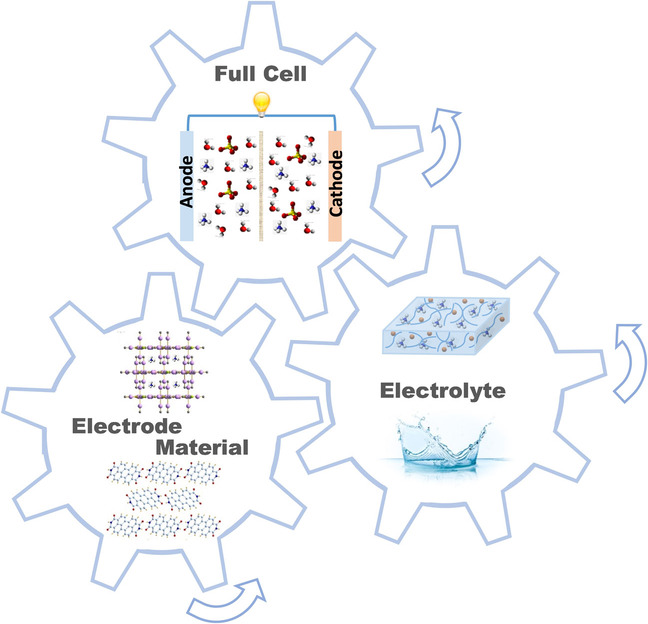
The fast diffusion kinetics of NH4+ ions and the abundance of resources have resulted in aqueous ammonium-ion batteries (AAIBs) gradually emerging as one of most promising approaches for energy storage systems beyond lithium-ion batteries. This Minireview highlights the most recent advances in electrode materials and electrolytes for AAIBs. An overview of the existing challenges and possible solutions is also given to enable further development of AAIBs.
Aufsätze
Bioimaging
The Chemistry of Organic Contrast Agents in the NIR-II Window
- First Published: 06 December 2021
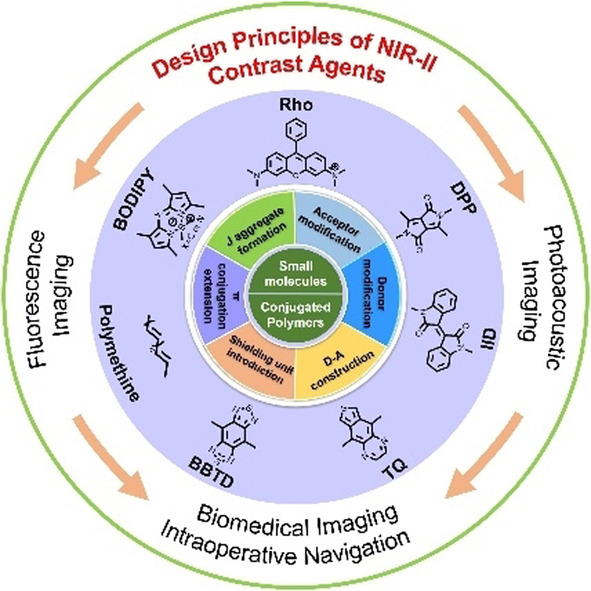
Organic fluorophores in the second near-infrared (NIR-II) range have been validated as attractive imaging tools in biomedical research owing to their biocompatibility, flexible chemical structure, and tunable spectra. This Review systematically summarizes recent advances in the chemistry, design principles, and optical properties of NIR-II organic contrast agents.
Forschungsartikel
Nanoparticle Synthesis
Peptoid-Directed Formation of Five-Fold Twinned Au Nanostars through Particle Attachment and Facet Stabilization
- First Published: 15 February 2022
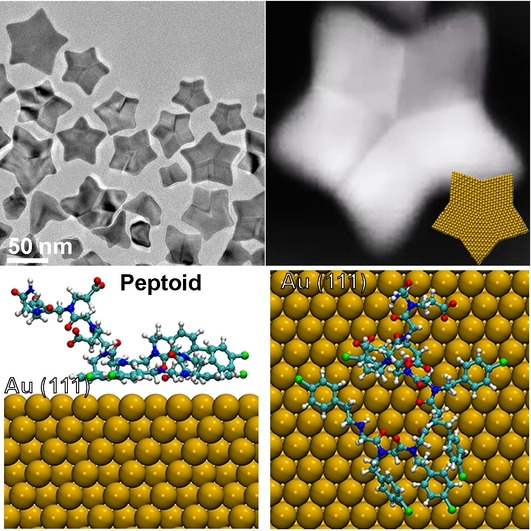
By taking advantage of the easy manipulation of peptoid–peptoid and peptoid–particle interactions solely by the variation of side chain chemistry, peptoid-induced formation of five-fold twinned Au star-shaped particles exhibiting five regular points has been achieved through a process of repeated particle attachment followed by facet stabilization.
Surface Chemistry
Depositing Molecular Graphene Nanoribbons on Ag(111) by Electrospray Controlled Ion Beam Deposition: Self-Assembly and On-Surface Transformations
- First Published: 25 January 2022

N-doped molecular graphene nanoribbons, deposited by electrospray controlled ion beam deposition, form extended, metal–organic coordination polymers after multiple chemical transformations employing on-surface synthesis protocols. These transformations and the nature of the metal–organic coordination motifs are investigated by high-resolution scanning tunnelling microscopy.
Drug Delivery
Microfluidics-Assisted Engineering of pH/Enzyme Dual-Activatable ZIF@Polymer Nanosystem for Co-Delivery of Proteins and Chemotherapeutics with Enhanced Deep-Tumor Penetration
- First Published: 05 January 2022
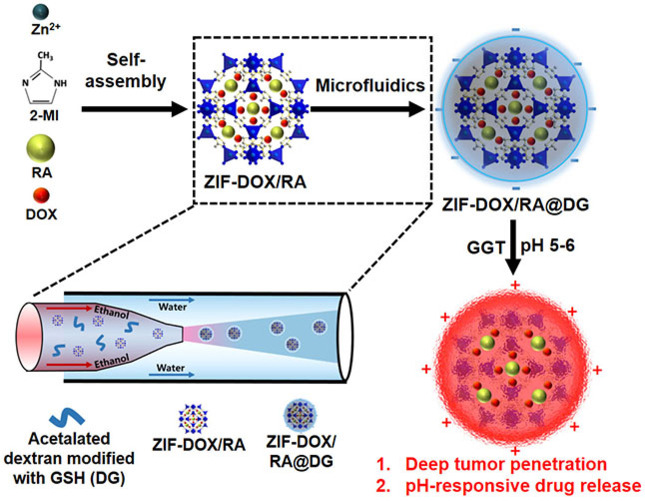
A novel pH/enzyme dual-activatable nanoplatform (ZIF@DG) was developed via in situ encapsulation of therapeutics into a zeolitic imidazolate framework ZIF-8, combined with microfluidics-assisted preparation of a DG polymer coating. The nanoplatform can co-deliver the protein drug ribonuclease A and the small-molecule drug doxorubicin with controlled drug release to deep tumor regions for synergistic cancer therapy.
Analytical Methods | Hot Paper
Hypoxia-Responsive Platinum Supernanoparticles for Urinary Microfluidic Monitoring of Tumors
- First Published: 25 January 2022
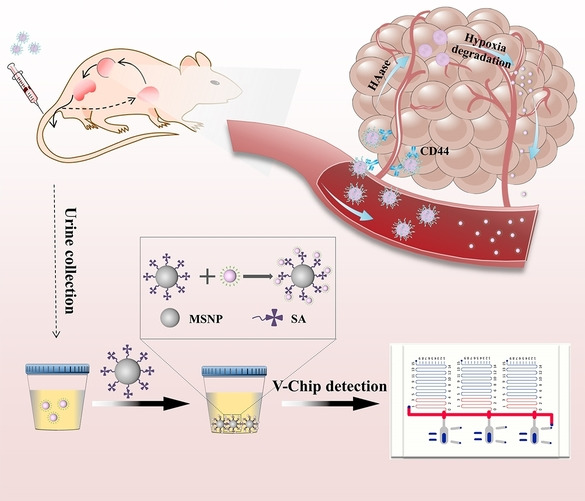
Hypoxia-triggered platinum supernanoparticles dissociated into ultrasmall platinum nanoclusters, which could be cleared by the kidney through urine, in response to the tumor microenvironment. After collection of the excreted nanosensors, the disease status was monitored visually and quantitatively by using a microfluidic chip.
Ammonia Synthesis | Very Important Paper
Dual Active Centers Bridged by Oxygen Vacancies of Ruthenium Single-Atom Hybrids Supported on Molybdenum Oxide for Photocatalytic Ammonia Synthesis
- First Published: 16 December 2021
Mesoporous Materials
Plasma-Induced Nanocrystalline Domain Engineering and Surface Passivation in Mesoporous Chalcogenide Semiconductor Thin Films
- First Published: 25 January 2022

Through plasma-enabled post-treatment technology, a constant elastic collision with a large surface area generates periodic lattice vibration at a high potential difference, thereby rearranging the lattice along the electrically preferred direction. Nanocrystallinity of the semiconductor film is dramatically improved through the rearrangement of lattice, and thus the optoelectric properties of the materials are greatly enhanced.
Zeolites | Hot Paper
Structure Elucidation and Computationally Guided Synthesis of SSZ-43: A One-Dimensional 12-Ring Zeolite with Unique Sinusoidal Channels
- First Published: 30 January 2022
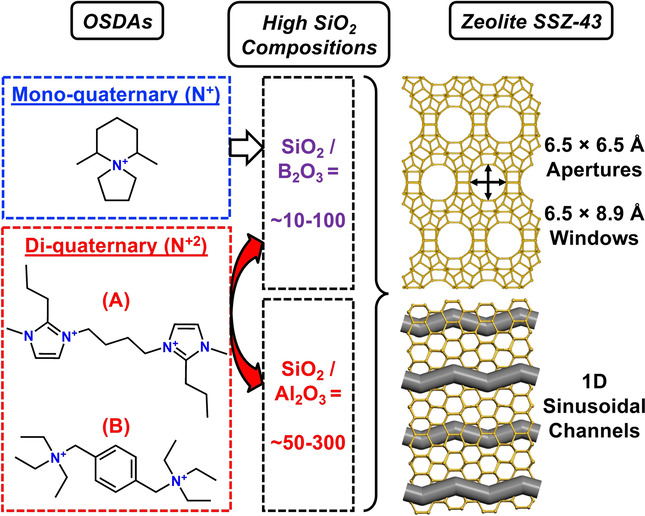
After two decades since its discovery, the structure of zeolite SSZ-43 has been determined as a novel framework comprised of a primitive orthorhombic crystal system with monoclinic faulting that forms unique, 1D 12-ring sinusoidal channels. A combination of molecular modeling and empirical relationships for zeolite selectivity was used to design two new di-quaternary OSDAs and produce SSZ-43 across a wide range of high SiO2 compositions.
Mechanochemistry | Hot Paper
Accelerated Mechanochemistry in Helical Polymers
- First Published: 24 January 2022

When polymer chains are stressed in solution, mechanochemistry is accelerated if helical conformations are present in the chain, as measured using a combination of size-exclusion chromatography and the use of rhodamine mechanophore activation. This phenomenon is explained by the increased persistence length in helical polymers, leading to more efficient energy transduction.
Hybrid Materials
Mapping the Morphological Landscape of Oligomeric Di-block Peptide–Polymer Amphiphiles
- First Published: 17 January 2022

Oligomeric di-block peptide–polymer amphiphiles (PPAs) provide a modular platform for sophisticated higher-order assembly, but tools to predict assembly behavior from molecular structure are limited. By systematically characterizing PPAs composed of oligo(ethyl acrylate) and random coil peptides, we outline general design principles of PPAs showing how oligomer length, dispersity, and peptide hydrophilicity impact the morphological distribution.
Hydrogen Evolution Reaction | Hot Paper
Modulating Built-In Electric Field via Variable Oxygen Affinity for Robust Hydrogen Evolution Reaction in Neutral Media
- First Published: 24 January 2022
Chiral Micromotors | Hot Paper
Self-Propelled Multifunctional Microrobots Harboring Chiral Supramolecular Selectors for “Enantiorecogniton-on-the-Fly”
- First Published: 09 February 2022
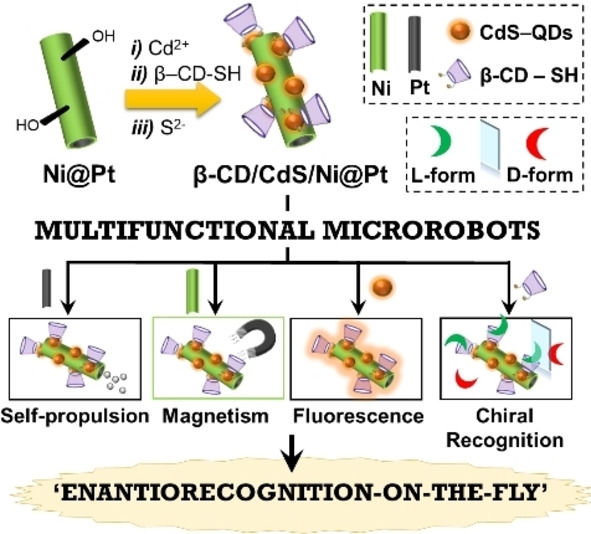
Multifunctional microrobots, made of Ni@Pt microrockets, CdS quantum dots, and a host β-cyclodextrin selector, have been engineered that simultaneously exhibit i) self-propulsion, ii) fluorescence, and iii) magnetic properties in combination with iv) supramolecular chiral recognition for “enantiorecognition-on-the-fly” approaches. As a model chiral target, tryptophan enantiomers have been discriminated using a bimodal (optical and electrical) readout.
Borylation | Very Important Paper
Synergistic Hydrocobaltation and Borylcobaltation Enable Regioselective Migratory Triborylation of Unactivated Alkenes
- First Published: 28 January 2022

A regioselective cobalt-catalyzed triborylation of unactivated alkenes is developed to access synthetically versatile 1,1,3-triborylalkanes with a catalyst generated from Co(acac)2 and xantphos. Mechanistic studies reveal that this triborylation reaction proceeds through three interdependent catalytic cycles.
Flow Chemistry | Hot Paper
Main-Chain Fluoropolymers with Alternating Sequence Control via Light-Driven Reversible-Deactivation Copolymerization in Batch and Flow
- First Published: 13 January 2022
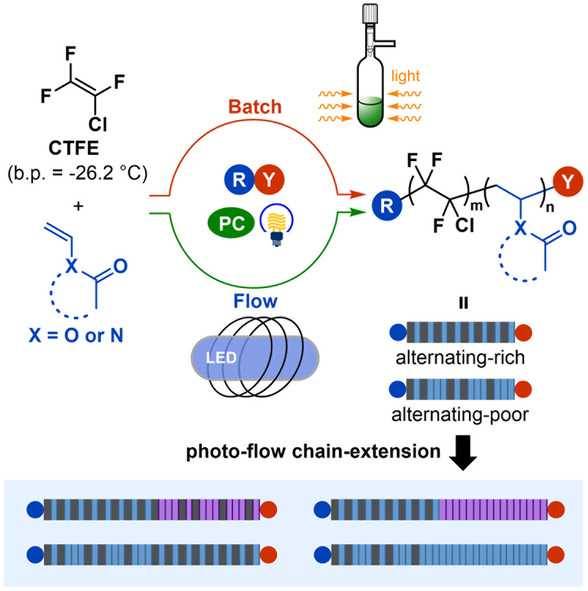
A light-enabled controlled copolymerization compatible with both batch and flow syntheses has been established for the transformation of chlorotrifluoroethylene and vinyl esters/amides. This work enables on-demand preparation of main-chain fluoropolymers with various fractions of alternating units under ambient conditions, and streamlines the generation of block copolymers from gaseous fluoroethylene using two-step photo-flow systems.
Biocatalysis | Hot Paper
Selective Fluorescence Imaging of Cancer Cells Based on ROS-Triggered Intracellular Cross-Linking of Artificial Enzyme
- First Published: 22 January 2022
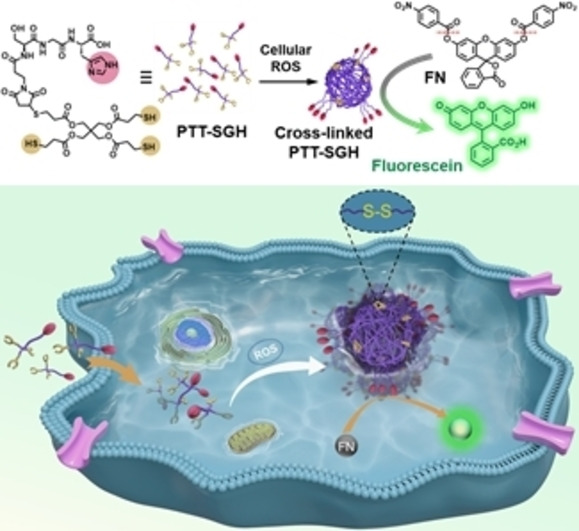
An artificial enzyme that responds to intracellular reactive oxygen species (ROS) was designed through introducing a catalytic histidine residue at one of the thiols of pentaerythritol tetra(3-mercaptopropionate). The artificial enzyme could in situ cross-link to form an assembled structure that could trigger the cleavage of the ester bond of pro-fluorophore and activate the turn-on fluorescence inside cancer cells for selective diagnosis.
Zinc Batteries
Ultrafast Metal Electrodeposition Revealed by In Situ Optical Imaging and Theoretical Modeling towards Fast-Charging Zn Battery Chemistry
- First Published: 27 January 2022
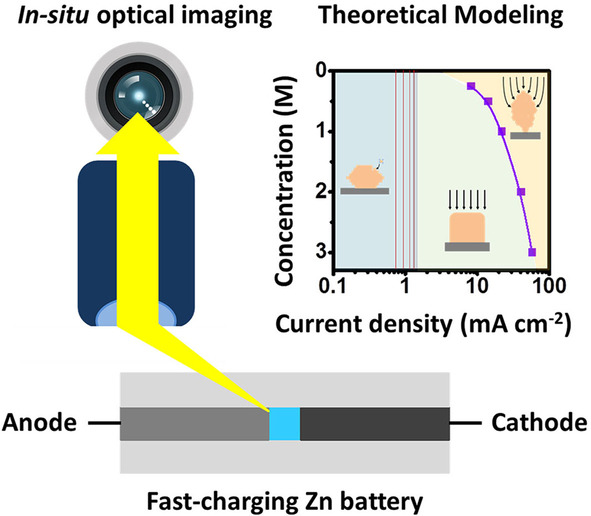
Ultrafast metal electrodeposition in fast-charging Zn batteries was investigated by in situ optical imaging and theoretical modeling. The critical parameters governing the electrodeposition stability of the metallic Zn electrode were uncovered, guided by which a highly reversible Zn metal electrode in an aqueous battery with a depth of discharge of 66.7 % at 50 mA cm−2 was achieved.
Molecular Rings | Very Important Paper
Record Aluminum Molecular Rings for Optical Limiting and Nonlinear Optics
- First Published: 02 February 2022
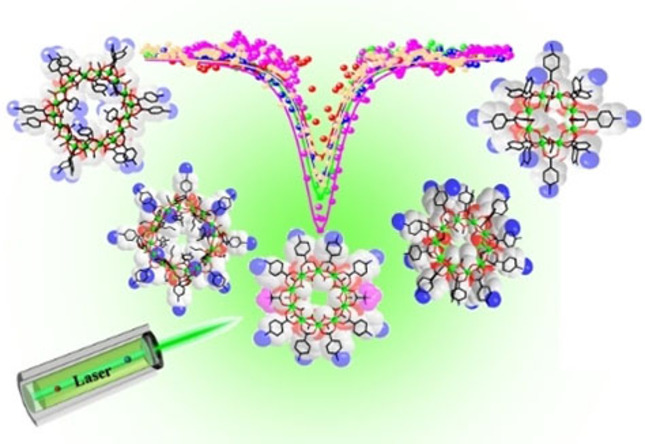
A synthetic approach to generate the largest aluminum molecular rings is presented. Their nonlinear optics (NLO) and optical limiting (OL) performance is studied by the Z-scan technique. The results provide insights to understand the NLO structure–activity relationship and tune the NLO performance at a molecular level.
Ca-Ion Batteries | Hot Paper
Concentrated Electrolyte for High-Performance Ca-Ion Battery Based on Organic Anode and Graphite Cathode
- First Published: 07 January 2022
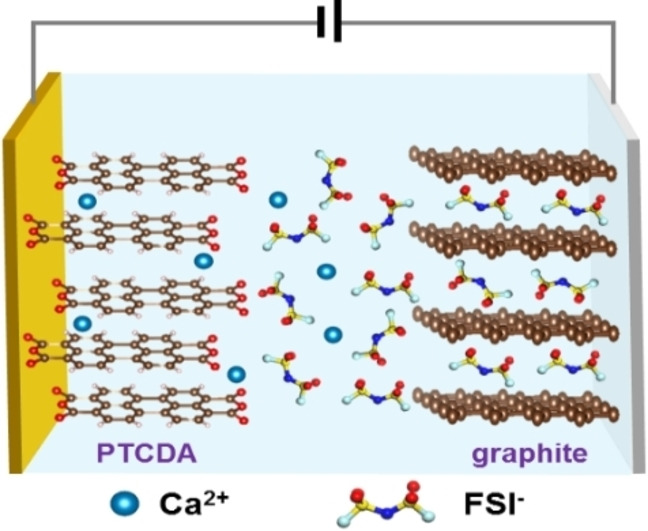
Ca-ion battery: Ascribed to the improved anion intercalation performance in the graphite cathode and reversible Ca2+ insertion in the organic anode, by combining a 3.5 m concentrated Ca-ion electrolyte with the low-cost and environmentally friendly graphite cathode and organic anode, the proof-of-concept Ca-based dual-ion battery exhibits 75.4 mAh g−1 specific discharge capacity and 84.7 % capacity retention over 350 cycles, among the best results for Ca-ion batteries.
Hydrogen Evolution | Hot Paper
Superlattice in a Ru Superstructure for Enhancing Hydrogen Evolution
- First Published: 12 January 2022
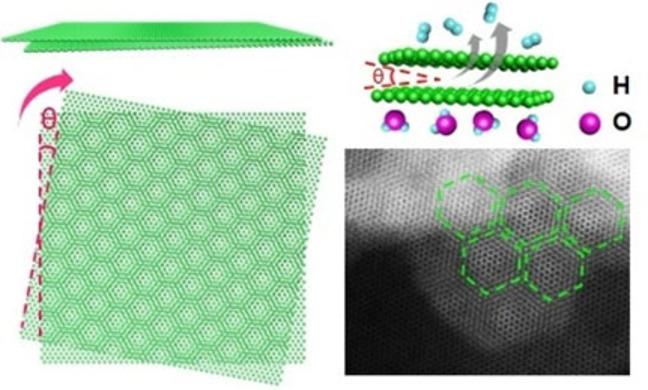
A facile wet-chemical method for synthesizing two-dimensional Ru multilayered nanosheets with a superlattice is reported and the significance of the superlattice on electrocatalysis is demonstrated. Theoretical calculations reveal that the superlattice between the adjacent Ru layers can induce the strain effect, which leads to the lattice contraction and the weakening of the *H adsorption ability, as a result of improved HER performance.
Fluorescence Emitters | Hot Paper
Highly Efficient Asymmetric Multiple Resonance Thermally Activated Delayed Fluorescence Emitter with EQE of 32.8 % and Extremely Low Efficiency Roll-Off
- First Published: 01 February 2022
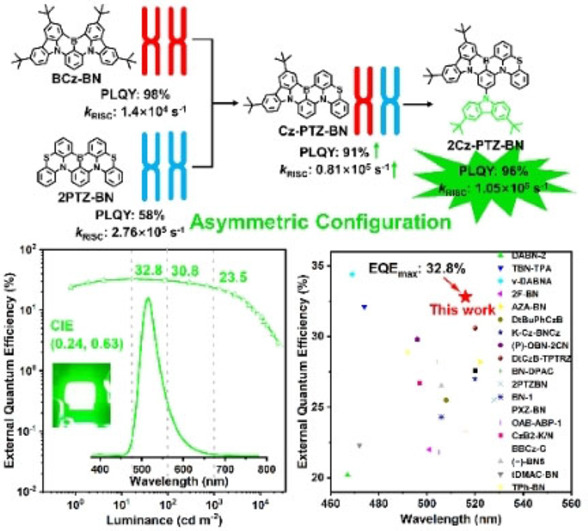
Using asymmetric peripheral protection as a design motif, two high efficiency and fast reverse intersystem crossing rate multiple resonance thermally activated delayed fluorescence materials were designed and synthesized. The corresponding device exhibits pure green emission with a remarkable external quantum efficiency of 32.8 % and relatively low efficiency roll-off without utilizing any sensitizer.
Theranostics | Hot Paper
Tumor-Microenvironment-Responsive Biodegradable Nanoagents Based on Lanthanide Nucleotide Self-Assemblies toward Precise Cancer Therapy
- First Published: 27 January 2022
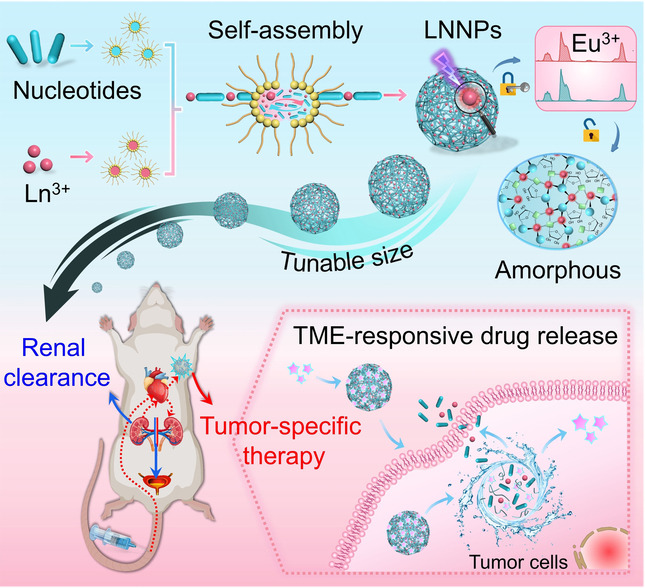
Self-assembled lanthanide nucleotide nanoparticles (LNNPs) with tunable size (4.6–105.7 nm) are developed by employing nanomicelles as a template. High-resolution spectra at 10 K are provided for the first time to unravel the local site symmetry of Ln3+ inside the LNNPs. The ultrasmall DOX@LNNPs can achieve rapid renal clearance and unique tumor accumulation, thus enabling efficient tumor-specific therapy with negligible long-term toxicity.
Solar-Thermal Conversion | Very Important Paper
Donor-Acceptor Molecule Based High-Performance Photothermal Organic Material for Efficient Water Purification and Electricity Generation
- First Published: 24 January 2022
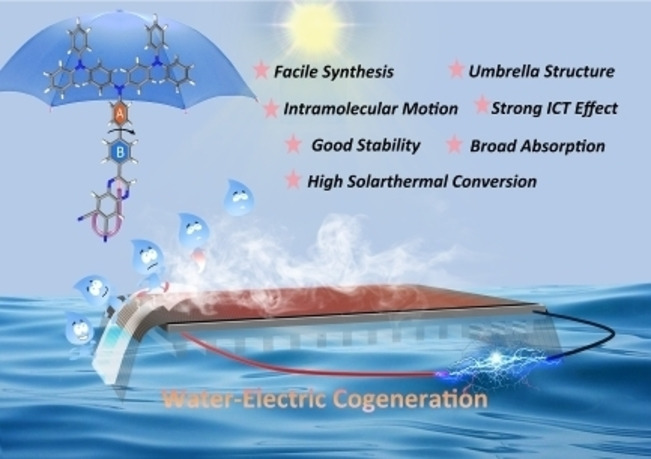
An umbrella-like donor-acceptor system (GDPA-QCN) based on a bulky dendritic donor (umbrella head) and a liner heterocyclic acceptor (umbrella handle) has been developed. GDPA-QCN shows strong sunlight absorption and efficient solar-thermal conversion properties in the solid state and was employed to fabricate a high-performance water purification and electricity generation system.
Organic Light-Emitting Diodes | Very Important Paper
Nitrogen-Embedded Multi-Resonance Heteroaromatics with Prolonged Homogeneous Hexatomic Rings
- First Published: 28 January 2022
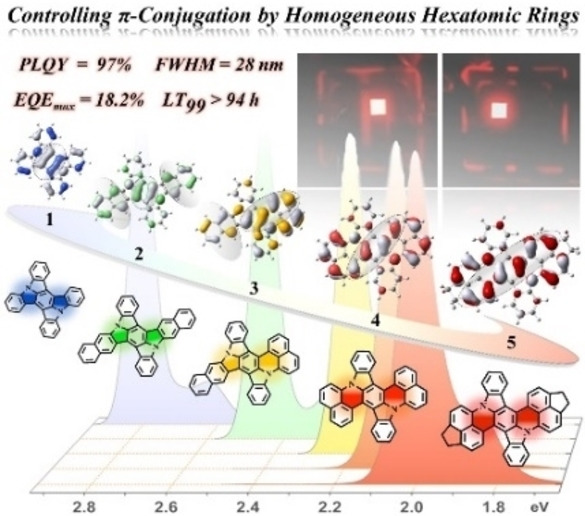
Red multi-resonance emitters with high photoluminescence quantum yields and narrowband emission were demonstrated by introducing homogeneous hexatomic rings into nitrogen-embedded polycyclic aromatic hydrocarbons. The resulting devices afforded state-of-the-art performance with external quantum efficiency up to 18.2 % and superior operation stability.
Biocatalysis
Carboxyl Methyltransferase Catalysed Formation of Mono- and Dimethyl Esters under Aqueous Conditions: Application in Cascade Biocatalysis
- First Published: 09 February 2022

The carboxyl methyltransferase FtpM can catalyse methylation and dimethylation of a wide range of mono- and dicarboxylic acids, showing high regioselectivity for some diacids. The enzymatic methylation works under aqueous conditions and can therefore be integrated into enzyme cascades as demonstrated by the two-step, one-pot conversion of bioderived HMF to bioplastics precursor FDME.
Gas Separation Membranes | Very Important Paper
Flexible Soft-Solid Metal–Organic Framework Composite Membranes for H2/CO2 Separation
- First Published: 01 February 2022

Novel flexible soft-solid MOF composite membranes were developed on commercial polyvinylidene fluoride (PVDF) substrates. The quasi-vertically oriented, solid Zn2(benzimidazolate)4 particles grown on the PVDF substrate provided predominant molecular sieving gas entrances, while the soft polyamide eliminated defects enclosing MOF particles, resulting in a superior H2/CO2 separation factor which far exceeded those of MOF-based membranes reported to date.
Gold Recycling
Iodine-Catalysed Dissolution of Elemental Gold in Ethanol
- First Published: 01 February 2022
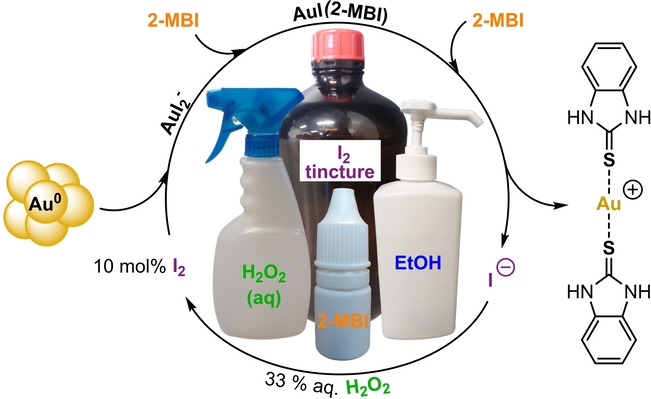
Gold can be dissolved in a sustainable manner with common household chemicals: iodine solution in ethanol, resembling diluted iodine tincture, green oxidant hydrogen peroxide and 2-mercaptobenzimidazole, a compound used in medicinal applications. Catalytic reactions and green solvents are the basis for sustainable development and recycling of precious metals like gold.
Neurochemistry | Hot Paper
Single-Vesicle Electrochemistry Reveals Sex Difference in Vesicular Storage and Release of Catecholamine
- First Published: 02 February 2022

Electrochemical quantitative measurements of vesicle chemistry (i.e., chemical storage and release) at the single-vesicle level reveal a sex difference in transmitter release during exocytosis, which might relate to the sex difference of the expression level of voltage-dependent calcium channels and membrane lipid composition. This research provides a new perspective to understand sex dimorphism in exocytosis.
Peptidomimetics
Oligo(N-methylalanine) as a Peptide-Based Molecular Scaffold with a Minimal Structure and High Density of Functionalizable Sites
- First Published: 28 January 2022
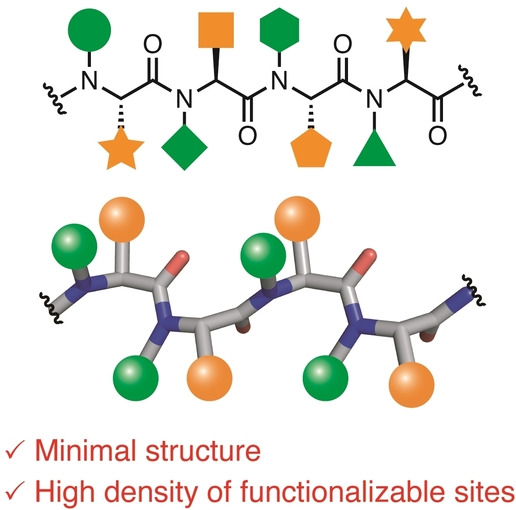
Oligo(N-methylalanine) (oligo-NMA) is proposed as a peptide-based molecular scaffold with a minimal structure and a high density of functionalizable sites. Computational and NMR spectroscopic analysis suggested that the backbone structure of oligo-NMA is not largely affected by functionalization. Moreover, the usefulness of oligo-NMA as a molecular scaffold was demonstrated by the design of protein ligands.
Bioimaging | Very Important Paper
Millisecond-Range Time-Resolved Bioimaging Enabled through Ultralong Aqueous Phosphorescence Probes
- First Published: 30 January 2022
Silylcyanation | Hot Paper
Palladium-Catalyzed Silylcyanation of Ynamides: Regio- and Stereoselective Access to Tetrasubstituted 3-Silyl-2-Aminoacrylonitriles
- First Published: 20 January 2022

Tetrasubstituted 2-aminoacrylonitriles (α-enaminonitriles) are underinvestigated building blocks due to the lack of methodologies to synthesize them in a controlled manner. A general access to these valuable scaffolds accompanied by mechanistic investigations and DFT calculations is described. This highly regio- and stereoselective strategy relies on the use of the first intermolecular silylcyanation of ynamides.
Conjugated Polymers | Hot Paper
Regulation of High Miscibility for Efficient Charge-Transport in n-Doped Conjugated Polymers
- First Published: 02 February 2022
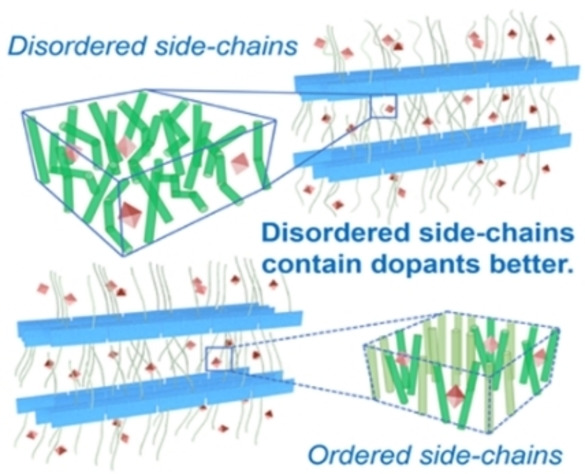
High host-dopant miscibility and excellent carrier mobility can be simultaneously achieved in n-doped conjugated polymers. High-mobility polymers usually possess poor miscibility because of strong interchain interactions. Without harming the efficient charge-transport based on the ordered polymer backbones packing, disordered side-chains are introduced to accommodate dopants better without disturbing charge-transport pathways.
Biomedical Imaging | Hot Paper
Tailoring a Near-Infrared Macrocyclization Scaffold Allows the Control of In Situ Self-Assembly for Photoacoustic/PET Bimodal Imaging
- First Published: 03 February 2022
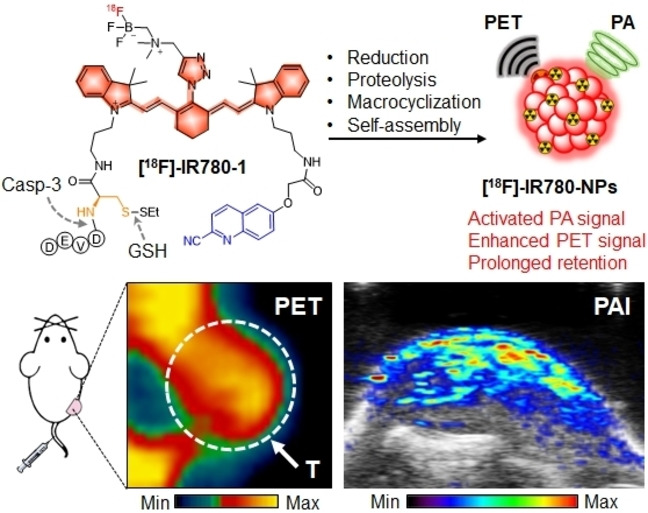
A near-infrared triazole-IR780 fluorophore was tailored as a PAI-active macrocyclization scaffold for controlling macrocyclization and in situ self-assembly, which enabled the development of a caspase-3-activatable PET/PAI bimodal probe [18F]-IR780-1 for noninvasive imaging of drug-induced tumor apoptosis in vivo, with potential for the early monitoring of tumor response to chemotherapy.
Polycycles
Dibenzodiazapyracylenes: Doubly N-Doped Cyclopenta-Fused Polycyclic Molecules That Exhibit High Carrier Mobility
- First Published: 04 February 2022
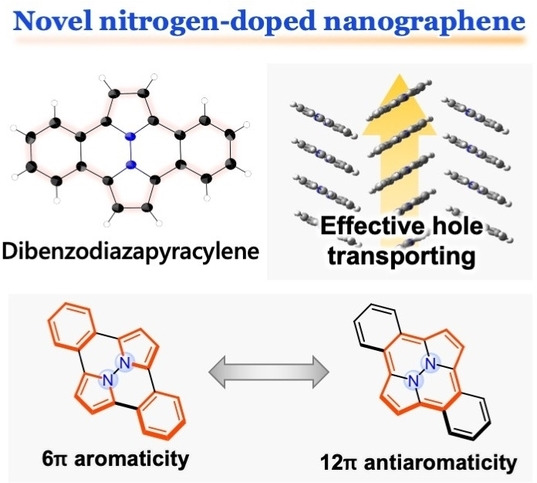
A novel nitrogen-doped CP-PAH, dibenzodiazapyracylene, was successfully synthesized and characterized. The aromatic and antiaromatic resonance hybrid characters have been verified by comparing their 1H NMR spectra to those of reference molecules. Their condensed packing structures in the solid state allowed for the effective hole transporting.
Single-Atom Catalysis | Hot Paper
A Universal Single-Atom Coating Strategy Based on Tannic Acid Chemistry for Multifunctional Heterogeneous Catalysis
- First Published: 01 February 2022
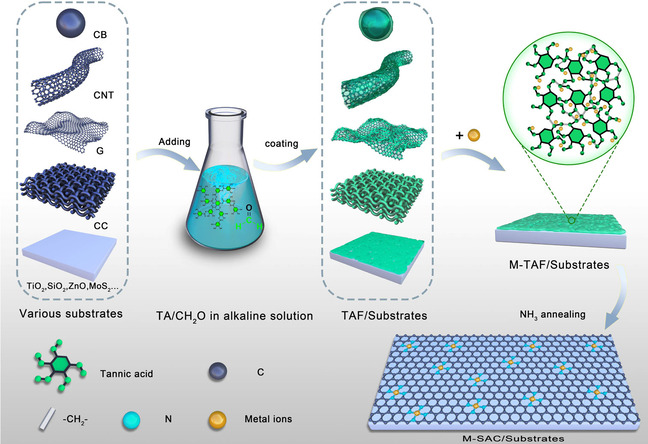
Based on the tannic acid coating method, a series of mono- and bi-metallic single-atom coatings (SACs) (e. g., Co, Fe, Mn, Co−Mn, Fe−Mn) can be formed on substrates of different materials (e. g., carbon black, carbon nanotubes, graphene, carbon cloth, SiO2, TiO2, ZnO, MoS2), dimensions (0D–3D) and sizes (50 nm–5 cm).
2D Membranes
Inorganic–Organic Hybrid Membrane Based on Pillararene-Intercalated MXene Nanosheets for Efficient Water Purification
- First Published: 31 January 2022
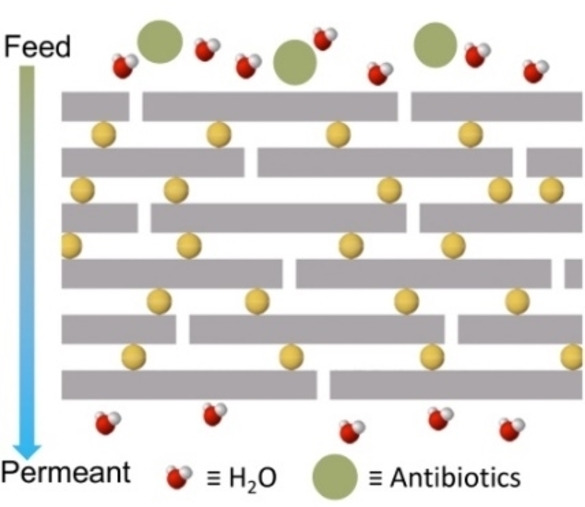
A strategy to prepare a series of inorganic–organic hybrid nanosheets based on pillararene-intercalated MXene nanosheets is reported, which have larger lateral size compared with the original MXene nanosheets, in which a membrane was formed through vacuum-assisted filtration. The as-prepared membranes exhibited relatively high water permeance, rejection, and stability for treating water containing antibiotics under dead-end filtration and cross-flow filtration conditions.
Luminescence | Hot Paper
A Descriptor for Accurate Predictions of Host Molecules Enabling Ultralong Room-Temperature Phosphorescence in Guest Emitters
- First Published: 02 February 2022
Radicals | Hot Paper
Molecular and Spin Structures of a Through-Space Conjugated Triradical System
- First Published: 27 January 2022
Zuschriften
Computational Chemistry
Hydrocarbon Macrocycle Conformer Ensembles and 13C-NMR Spectra
- First Published: 31 January 2022
Conformational Analysis
Origin of High Diastereoselectivity in Reactions of Seven-Membered-Ring Enolates
- First Published: 25 January 2022

The diastereoselective reactions of chiral seven-membered-ring enolates have been systematically investigated. Diastereoselectivity was found to be general for ϵ-lactams, ϵ-lactones, and cycloheptanones with various substituent patterns. Computational investigations provided insight into the origin of the diastereoselectivity. A model for predicting the stereochemistry of seven-membered-ring enolate alkylations is proposed.
Radical Cross-Coupling | Hot Paper
Alkyl-GeMe3: Neutral Metalloid Radical Precursors upon Visible-Light Photocatalysis
- First Published: 30 December 2021
Electrocatalytic Synthesis
Electrocatalytic Allylic C−H Alkylation Enabled by a Dual-Function Cobalt Catalyst
- First Published: 07 February 2022

An electrocatalytic allylic C−H alkylation reaction with carbon nucleophiles is reported, which employs an easily available cobalt–salen complex as the molecular catalyst. The method is characterized by its excellent functional group tolerance, substrate compatibility with both linear and branched terminal alkenes, and scalability (up to 200 mmol scale) with a low loading of electrolyte (down to 0.05 equiv).
Reductive Coupling | Hot Paper
Enantioselective Iridium-Catalyzed Reductive Coupling of Dienes with Oxetanones and N-Acyl-Azetidinones Mediated by 2-Propanol
- First Published: 04 February 2022

Cyclometallated iridium-PhanePhos complexes catalyze 2-propanol-mediated reductive couplings of 2-substituted dienes with oxetanone and N-acyl-azetidinones to form branched homoallylic oxetanols and azetidinols with excellent control of regio- and enantioselectivity without C−C cleavage of the strained ring. This work represents the first systematic study of enantioselective additions to symmetric ketones.
Solar Cells | Hot Paper
Homogeneously Large Polarons in Aromatic Passivators Improves Charge Transport between Perovskite Grains for >24 % Efficiency in Photovoltaics
- First Published: 11 January 2022
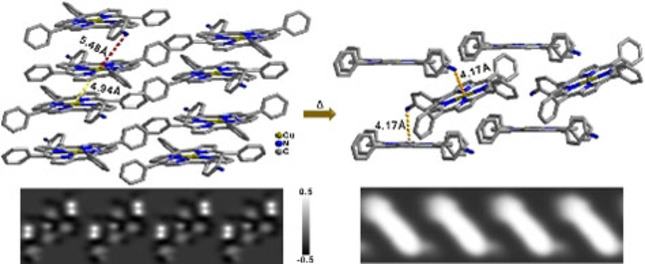
Charge transport behavior of two amine Cu porphyrin supramolecules with different stacking interactions in perovskite grain boundaries was investigated in detail. Results prove that the construction of homogeneously large polarons (HLPs) in aromatic passivators is a key factor for the charge transport between perovskite grains. This work also affords a new strategy to design new optoelectronic materials with improved charge mobilities.
Polymer Self-Assembly
Self-Evolution of High Mechanical Strength Dry-Network Polythiourethane Thermosets into Neat Macroscopic Hollow Structures
- First Published: 01 February 2022
Gold Coordination Polymers | Hot Paper
Cyclic Solid-State Multiple Phase Changes with Tuned Photoemission in a Gold Thiolate Coordination Polymer
- First Published: 01 February 2022
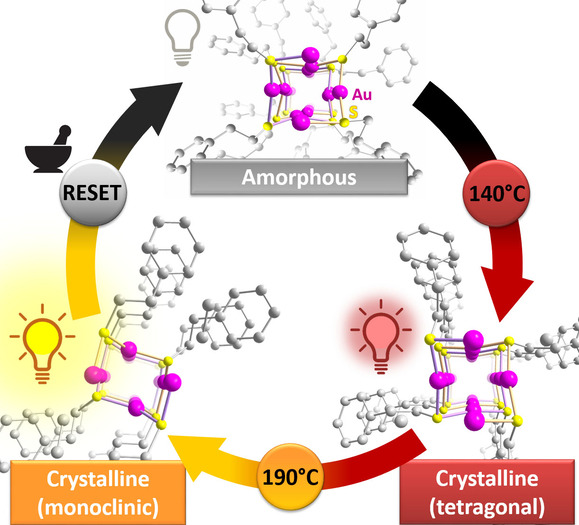
A non-emissive amorphous AuI–thiolate coordination polymer undergoes two successive crystallisation phase changes on mild solid-state heating. The first high symmetric crystalline phase becomes slightly red-emissive and the second, which has a lower symmetry, exhibits intense luminescence due to the presence of aurophilic interactions. These transitions are reversible upon soft hand grinding, offering potential for non-volatile memories.
Organocatalysis
Synthesis of Axially Chiral Aldehydes by N-Heterocyclic-Carbene-Catalyzed Desymmetrization Followed by Kinetic Resolution
- First Published: 31 January 2022

N-Heterocyclic carbene (NHC)-catalyzed atroposelective esterification of dialdehydes led to structurally diverse axially chiral aldehydes in good yields, with high enantioselectivity enabled by unprecedented NHC-catalyzed desymmetrization of the dialdehydes followed by kinetic resolution. This protocol, which features mild reaction conditions and broad functional-group tolerance, provides modular access to value-added axially chiral aldehydes and their derivatives.
Coordination Polymers
Reversible One- to Two- to Three-Dimensional Transformation in CuII Coordination Polymer
- First Published: 02 February 2022
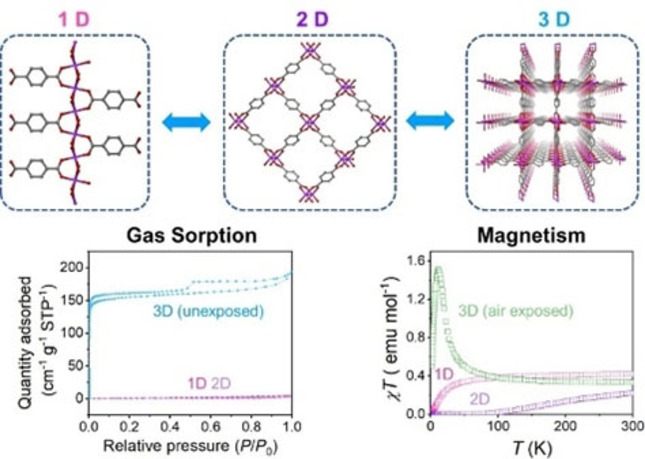
Reversible multi-dimensional transformation of a coordination polymer composed of CuII ions and terephthalate ligands was achieved for the first time by controlling the coordination environment. The dimensional transformation led to significant changes in the chemical and physical properties specific to coordination polymers, such as gas sorption and magnetism.
Molecular Communication | Hot Paper
Photoswitchable Molecular Communication between Programmable DNA-Based Artificial Membraneless Organelles
- First Published: 28 January 2022
CO2 Reduction | Very Important Paper
Dissection of Light-Induced Charge Accumulation at a Highly Active Iron Porphyrin: Insights in the Photocatalytic CO2 Reduction
- First Published: 26 January 2022
Analytical Methods | Hot Paper
Operando Imaging of Chemical Activity on Gold Plates with Single-Molecule Electrochemiluminescence Microscopy
- First Published: 27 January 2022
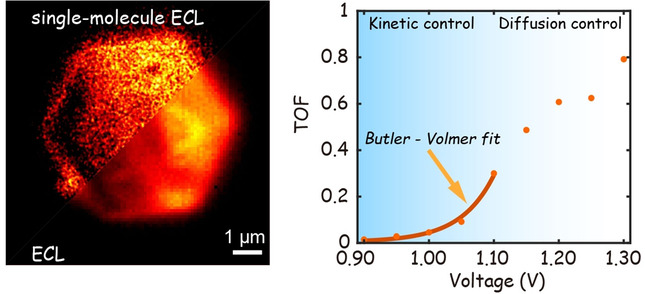
Understanding the structure–activity relationship is of crucial importance to the evaluation and the rational design of novel catalysts. Herein, single-molecule electrochemiluminescence microscopy is employed for super-resolution mapping of the chemical activity and kinetic analysis of Ru(bpy)32+-based reactions on single gold plates, which enables spatiotemporal characterizations down to the single-reaction level.
Organic Crystals
Hybrid Elastic Organic Crystals that Respond to Aerial Humidity
- First Published: 28 January 2022
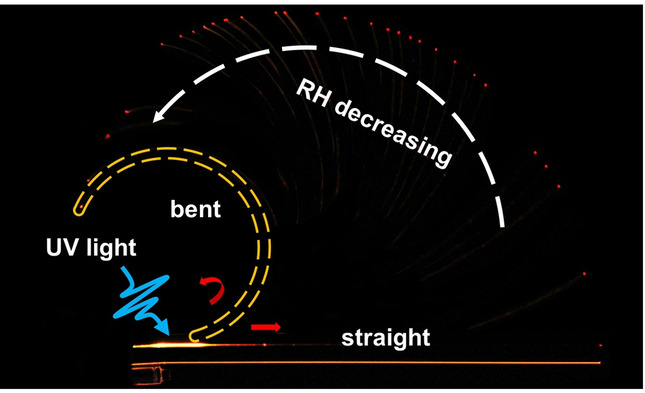
A new class of lightweight, mechanically reinforced, hygroresponsive organic crystalline hybrid materials has been synthesized by a universally applicable approach. The crystals are robust, durable, and moisture-absorbing, and show a highly linear deformation over a wide range of relative humidity. Such precise spatiotemporal control over the light output in response to air humidity allows the materials to be used as optical waveguides.
NMR Spectroscopy | Hot Paper
Real-Time NMR Recording of Fermentation and Lipid Metabolism Processes in Live Microalgae Cells
- First Published: 01 February 2022
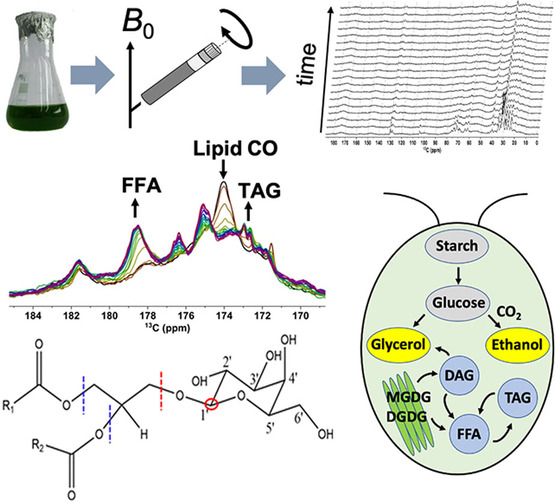
The application of solid-state MAS NMR on live microalgae for monitoring of fermentation, lipid metabolism and structural dynamics changes is demonstrated. Conversion of galactolipids into TAG and free fatty acids is observed, accompanied with rapid loss of rigid lipid structures. It is concluded that high cell densities, creating dark, anoxia conditions, induce lipid catabolism and cell death resulting in breakdown of cell and organelle membranes.
Nucleoside Antibiotics | Hot Paper
Total Synthesis and Stereochemistry Assignment of Nucleoside Antibiotic A-94964
- First Published: 09 February 2022
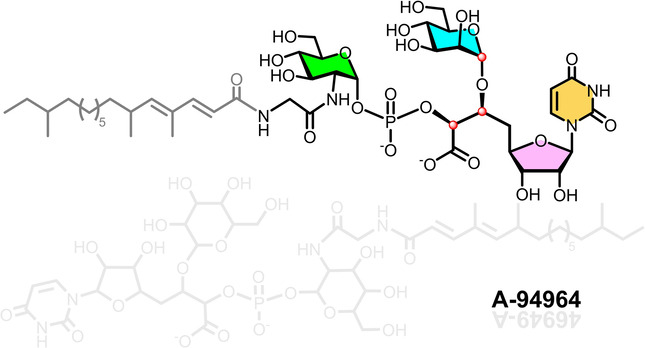
Full stereochemical assignment of the structurally unique nucleoside antibiotic A-94964, which shows potent inhibitory activity against the vital bacterial phospho-N-acetylmuramyl-pentapeptide translocase, was achieved by the collective total synthesis of eight diastereoisomers in combination with NMR analysis.




